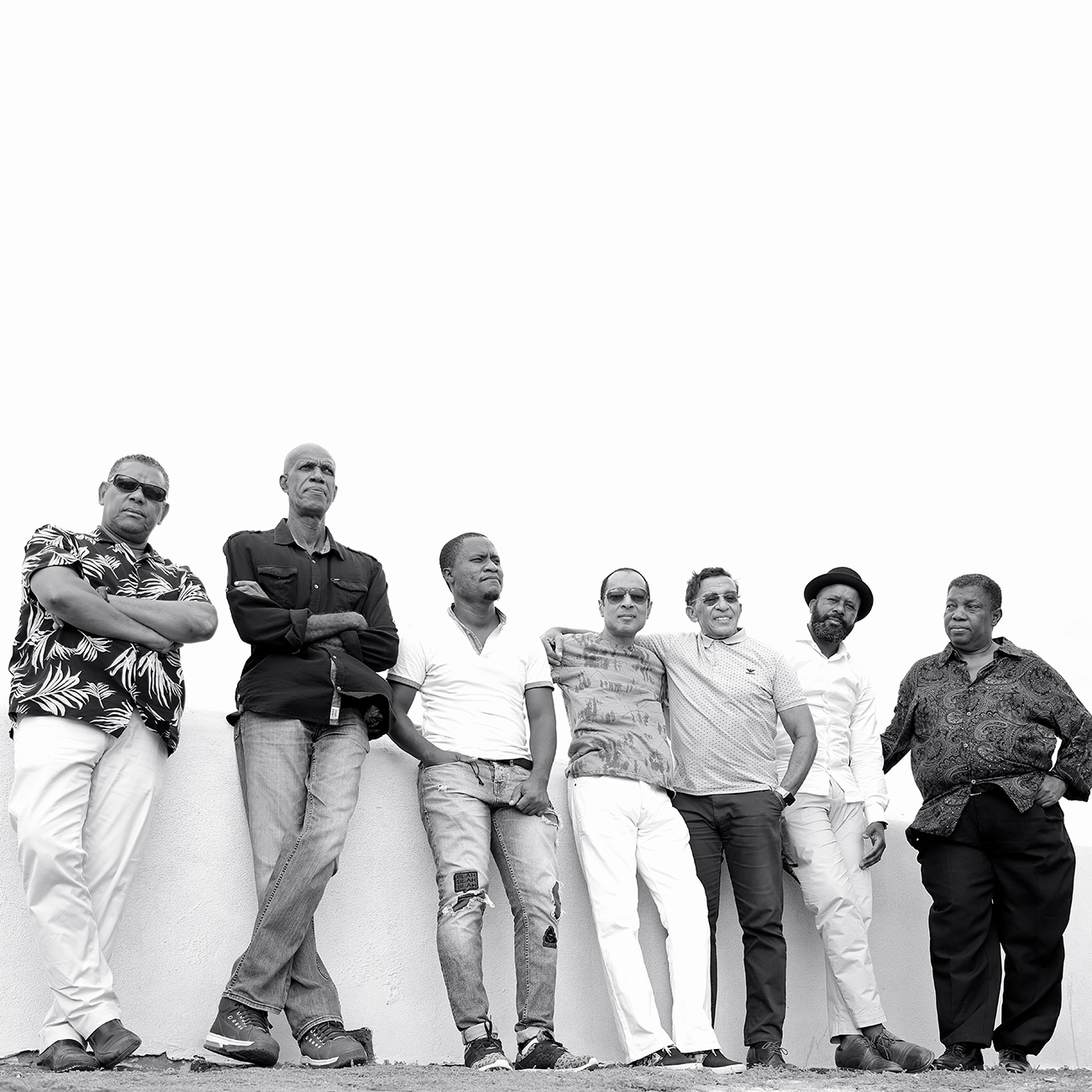




Bulimundo
(CV)
When Bulimundo appeared, in 1978, on the initiative of musician Carlos Alberto Martins, there was a period of great cultural effervescence in the Cape Verde archipelago, driven by the newly achieved independence. And one of the main missions of the group was from the outset a return to the origins of traditional Cape Verdean music, especially Funaná, then seen as a minor genre, confined to the rural and poorer areas of the island of Santiago, from there to find new musical paths. The first public performance was in 1980, in a series of concerts organized at the Cine Teatro da Praia to commemorate the five years of Cape Verde's independence. Traditionally played with a “gaita” (diatonic accordion) and an iron bar known as “ferrinho”, funaná added the electrification of a band, bringing it to the center of the city and popularizing it with a new generation. From the subordinate place to which the conservatism of the colonial authorities had sent it, funaná became, via the Bulimundos, the new pop of Cape Verde, especially among the immense diaspora of this small country, which would open the doors of Europe and America to the group, riding albums as fundamental as Bulimundo and Djam Branku Dja, both from 1980. Many more would follow, until 1997, the year in which the group would interrupt the activity, to reunite two decades later, returning to the stage with three of the founding elements, of the eight that are currently part of of this collective.

